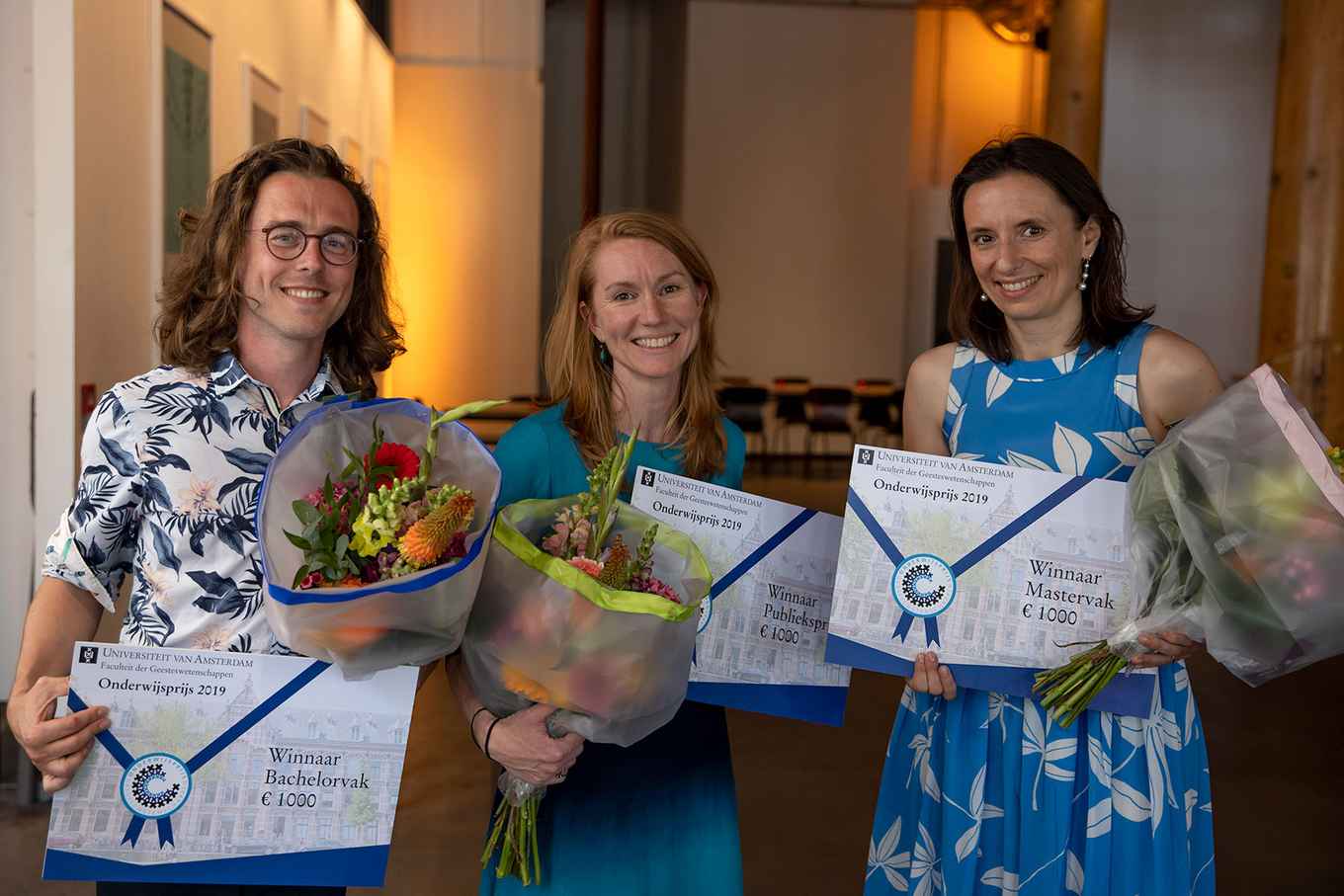Humanities Education Award goes to 'Games' and 'Zorgen voor het zelf'
Audience Award won by Kristine Johanson's Shakespeare Course
27 June 2019

Bachelor's course Games (Media Studies)
Games is the first Humanities course that concerns itself with the field of video games. The course's teaching methods are innovative: alongside more or less traditional lectures, students work on creating their own video in game labs, in which not only editing but also the editorial side of things come to the fore: how do you structure a video and how do you convey a message? The students present their work on an interactive online platform where fellow students can immediately share their feedback. According to Chakir Benzina, one of the students who nominated this course, this platform is a 'brilliant learning environment in which you constantly evaluate and improve each other's work'.
Master's course Zorgen voor het zelf (History)
The winning Master's course Zorgen voor het zelf , taught by Justyna Wubs-Mrozewicz, is remarkable because of its scope and diversity: it comprises an entire millennium, from the Vikings through to the modern age, and it concerns the question of how, as a historian, you can study the relation between the individual and society by using social science theories. The human paradox – in which on the one hand, we want to belong to a group but on the other hand, we want to distinguish ourselves – has been interpreted differently throughout history. Students research the development of groups and individuals from a long, historical perspective in which they take economics, politics, religion and culture into account, too.
Audience Award: Shakespeare, Sexuality, and Adaptation
This year was the first year in which an audience award was also handed out. Kristine Johanson received approximately a quarter of the votes for her course Shakespeare, Sexuality, and Adaptation, finishing just ahead of Toni Pape's Games. The course, which is part of the Master's English Literature and Culture, revolves around the question of how modern film and media adaptations of Shakespeare's work represent early modern sexuality.
About the Humanities Education Award
The Humanities Education Award is handed out annually to a Bachelor's and Master's course in which inspiring teaching methods are employed or which can serve as an example for future projects within education. This year was the first year in which students and staff were able to personally nominate courses. The jury received 35 nominations: 28 for a Bachelor’s course and 7 for a Master’s course. From these, the jury then chose a shortlist made up of the following nominees:
Bachelor's:
- Games (Media Studies), Toni Pape
- Living Information (Media and Information), Mark Deuze
- Legacies of the Enlightenment (European Studies), Matthijs Lok
Master's:
- Shakespeare, Sexuality, and Adaptation (English Language and Culture), Kristine Johanson
- Zorgen voor het zelf (History), Justyna Wubs-Mrozewicz
- Van wie is de stad? Crisis en conflict in moderne Westerse steden (History), Tim Verlaan